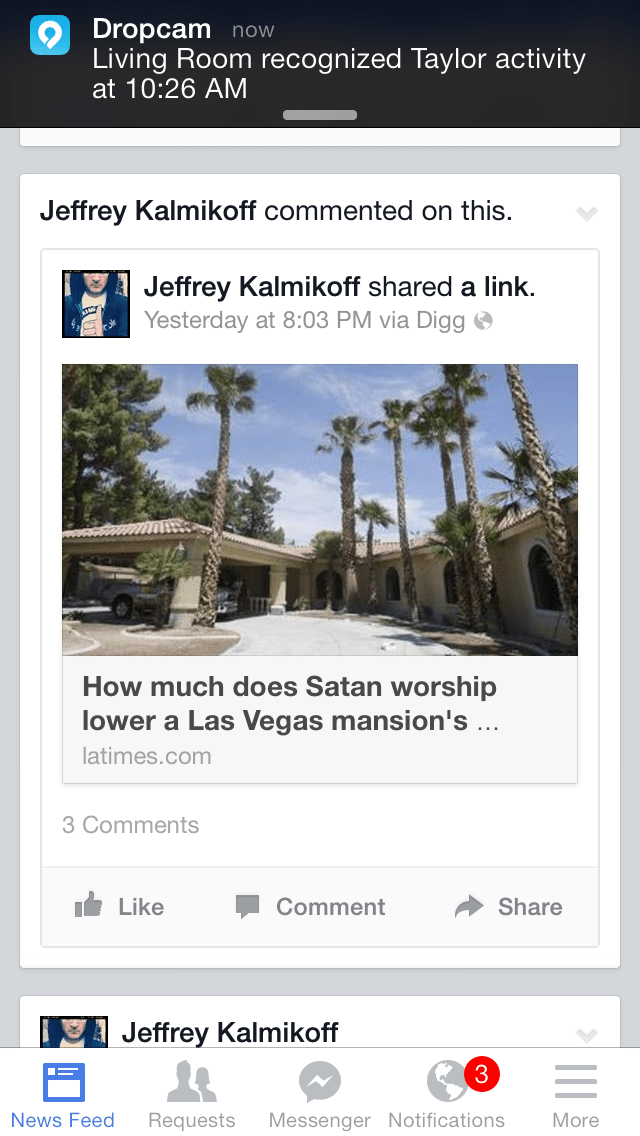Don’t Lie; You Don’t Care
As you can see from the screenshot, this post is from a little while ago. I am updating it because things haven’t gotten better and in many ways, Dark UX has gotten worse. As product people, we can do better.
It began simply enough.
A post in my Facebook feed that was interesting enough that I wanted to click on it. After all, who doesn’t want to learn more about Satan worship and its effect on housing pricing?

Link says “latimes.com” but instead of going to the article, it launches the App Store and lands you on the page to download the Digg Reader app.
Respect for being douchey. I get it. Me going to the LA Times makes you no money. Downloading your app gets me closer to ringing the cash register.
Except it didn’t. I will never use the Digg Reader, and am now writing a post telling everyone that I won’t.
*deep breath*
This is not a post about Digg. I met them. Good folks, hard-working folks. Focused on driving news, engagement and proving traction. Cool. High five.
But as “Growth Hacking” has gotten more competitive and difficult, it has started to move into “Growth Hawking,” a disease that crushed search engine optimization and later social media marketing, and is fast working its horrible magic on app store optimization and all the other optimizations that are soon to come (can I get a Snap on that!?)
I was an early SEO guy. Early enough to remember taking photos of Google gift cards to get free Adwords and counting the characters in a page title to ensure a proper density of keywords. I was early enough to see it go to hell as the hawks moved in. In the drive to make a buck, they destroyed a perfectly good practice, and I was happy as hell to see Google fight back with Panda.
Now that SEO is dead, the Hawks moved on to social media. First came the experts, then the gurus, now the hawks. For $40, I can add 10,000 twitter followers. What the hell?
The conversation about the importance of delighting customers is not quite complete junk. Yet.
Perhaps I am overly sensitive to the customer experience. Maybe I am expecting too much. But, when it takes 25 minutes between making a decision to buy a product and clicking the buy button, something is wrong. When I decide to cancel service, and you keep me on the phone (you forced me to call? Really?) artificially for more than 10 minutes hoping that remorse will find its way into my heart and I will dramatically, perhaps even tearfully, bemoan my mistake and take your offer for 25% off my bill?
In the drive to derive value from each customer, we forget that our goal as entrepreneurs is to solve problems for life, not for the first $10.
The Hawks are driving the creation of low-value apps that exist solely to drive large customer numbers to simulate traction so that large investment rounds can be procured. (No, I don’t see Snap as one such company. They are creating value in the exploration of changing communication patterns.)
We need to take a stand. Refocus on delighting users in every tactic and strategy we employ. To start believing again that our companies will be around for a long time, and build as if we aren’t chasing founder liquidity and tell the Hawks to stick it.
A link in a Facebook post may seem like a small thing, and I assume it was an oversight, but it destroyed my experience. Same with TiVo and their stupidity around disallowing me to cancel service simply and Microsoft and their hoops that they force users through to spend money. And a dozen other companies that have fantastic design and it takes me minutes to figure out how to do simple things.
Decide what kind of company you are creating. Decide what type of customer you want. And be unflinching in your conviction to protect that user and their experience within your product.
Don’t mess it up because your vanity or investors decide that rapidly driving numbers is the most important thing you can focus on today.
Or be respectful, and don’t lie to me if you don’t care.
